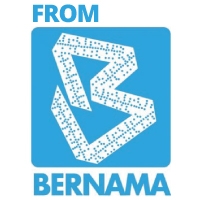ALOR GAJAH, Jan 18 — Abolishing the system of segregating students into different classes based on their academic performance beginning next year, will require teachers to be more prepared for a bigger challenge.
Universiti Teknikal Malaysia Melaka (UTeM) Council of Professors chairman, Prof Datuk Dr Abu Abdullah said implementation of the new concept would require teachers to be more creative with the teaching and learning (PdP) methods as they had to simultaneously handle the fast learners and slow learners.
He suggested that teachers come up with alternatives to avoid the determined, highly-motivated and excellent students from being influenced by the negative attitude of their classmates who lacked focus and inclined to being playful in class.
“We fear teachers will face problems during the PdP process. For instance, the smart students will only take about half an hour to understand something taught in class, while the weak students may not understand it even after more than an hour of explaining because of the different levels of intelligence.
“However, let’s look at the positive side; mixing of the smart and less smart students in the same class could indirectly help them be more competitive,” he told a press conference held at the UTeM main campus in Durian Tunggal, here, today.
Education director-general Datuk Dr Amin Senin was recently quoted as saying that the segregation of students into different classes based on their academic performance and the segregation method through the Year One Entry Test would be done away with from 2019.
Abu said the policy makers and implementers in the Education Ministry also needed to be equipped with up-to-date skills while various factors had to be taken into consideration before the system could be fully implemented.
“The relevant parties also need to take the initiative and right approaches in giving exposure to the teachers, parents and students on the practice of no streaming, especially towards changing their mentality so that it would be well accepted.
“I welcome the ministry’s intentions, but in view of a new thing usually taking time to be accepted, certain aspects like human resource expertise, infrastructure and high-speed Internet access must be given priority so as to be in tandem with the technological advancements taking place and for an effective learning process,” he said.
He also said that the examination-oriented education that had been in practice since 60 years ago needed a paradigm shift to be in line with 21st Century learning although difficult to be accepted by all quarters.
He cited the Form Three Assessment (PT3) examination which was initially difficult to be accepted by many parties, with some claiming the questions to be too tough, but eventually everyone could adapt to it, and he said it was the same with the Primary School Assessment Report (PSSR). — Bernama



















